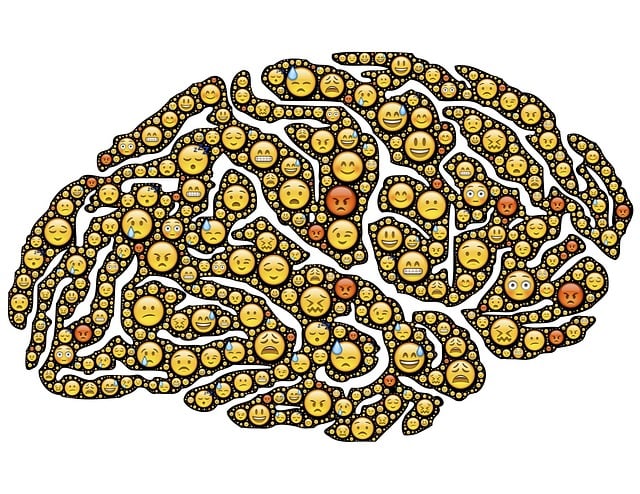Emotional intelligence (EI) is vital for young children's well-being, and therapy, coupled with American Sign Language (ASL), offers a powerful approach. ASL enhances non-verbal communication, boosting self-awareness and emotional vocabulary in kids. It serves as an alternative for those facing language or sensory barriers, aids trauma services, and fosters empathy. Integrating ASL into therapy and daily interactions promotes emotional regulation, breaks stigma, and enhances social connections. Parenting strategies that include ASL and teach conflict resolution further develop EI. Schools and communities supporting these efforts through ASL programs and mental wellness initiatives contribute to children's overall resilience and success.
Emotional intelligence (EQ) is a vital skill for personal growth, especially in young minds. This article explores strategies to enhance EQ development, providing a comprehensive guide for parents, caregivers, and educators. We delve into the foundational concepts of emotional awareness and its impact on children’s well-being. Furthermore, we discuss the role of therapy as an effective tool for nurturing EQ, particularly in young children. Additionally, American Sign Language (ASL) is presented as a unique method to unlock communication and emotional expression.
- Understanding Emotional Intelligence: A Foundation for Young Minds
- The Role of Therapy in Nurturing EQ (Emotional Quotient) in Children
- American Sign Language (ASL): Unlocking Communication and Emotional Expression
- Practical Strategies for Parents and Caregivers at Home
- Building a Supportive Environment: Schools and Community Initiatives
Understanding Emotional Intelligence: A Foundation for Young Minds

Emotional intelligence (EI) is a vital skill for young minds to navigate their world, fostering resilience and healthy interactions. It involves recognizing, understanding, and managing one’s own emotions, as well as empathizing with others. For young children, developing EI early can be transformative, serving as a foundation for robust social and emotional development.
In the context of therapy for young children, American Sign Language (ASL) has proven to be an effective tool in promoting EI. Through ASL, children learn to express their feelings and needs non-verbally, enhancing their self-awareness and emotional vocabulary. This early exposure to sign language can also support trauma support services by providing a safe and alternative means of communication, which is particularly beneficial for those experiencing language barriers or sensory sensitivities. Moreover, building EI through ASL encourages empathy and cultural understanding, preventing burnout in young individuals as they learn to navigate their emotions and the emotions of others.
The Role of Therapy in Nurturing EQ (Emotional Quotient) in Children

Therapy plays a pivotal role in nurturing Emotional Quotient (EQ) in young children, offering them tools to understand and manage their emotions effectively. Through specialized therapy sessions, children can learn to identify and express feelings, fostering self-awareness—a cornerstone of emotional intelligence. American Sign Language (ASL), for instance, is increasingly integrated into therapeutic practices, providing a non-verbal means for kids to communicate their inner world, especially beneficial for those who find verbal expression challenging.
This process goes beyond mere language acquisition; it’s about breaking down barriers caused by mental illness stigma and promoting mindfulness meditation techniques. By engaging in therapy, young individuals develop empathy, enhance social interactions, and cultivate coping mechanisms, all of which contribute to building a robust emotional intelligence foundation.
American Sign Language (ASL): Unlocking Communication and Emotional Expression

American Sign Language (ASL) serves as a powerful tool for emotional intelligence building, especially among young children. By learning ASL, kids gain an alternative means of communication that enhances their ability to express emotions and understand others’ sentiments. This is particularly beneficial for those navigating therapy for young children with social or emotional challenges. Through sign language, children can more effectively convey their feelings, fostering better connections with caregivers and therapists.
Beyond improving communication, ASL promotes resilience building by empowering kids to become active participants in expressing and managing their moods. Research suggests that the mental wellness podcast series production inspired by ASL can further enrich emotional intelligence development. By integrating sign language into therapy sessions and daily interactions, professionals can create a more inclusive and engaging environment, ultimately contributing to improved emotional regulation and overall mental wellness.
Practical Strategies for Parents and Caregivers at Home

Parenting is a powerful platform for cultivating emotional intelligence in young children. At home, parents and caregivers can employ several practical strategies to foster this skill set. One effective approach is incorporating American Sign Language (ASL) into daily communication. Learning ASL allows kids to express their feelings and needs non-verbally, enhancing self-awareness and empathy. This simple tool can be a gateway to deep conversations about emotions, encouraging children to recognize and label their own and others’ sentiments.
Additionally, parents can model and teach conflict resolution techniques, such as active listening and calm communication, to help kids navigate social interactions. By practicing these skills in the home environment, young children can build inner strength and develop healthier relationships. Moreover, focusing on self-esteem improvement through positive reinforcement and age-appropriate tasks can boost their emotional resilience. These strategies collectively contribute to a child’s emotional intelligence development, setting them up for success in their personal and professional lives.
Building a Supportive Environment: Schools and Community Initiatives

Creating a supportive environment is pivotal in fostering emotional intelligence in young children. Schools and community initiatives play a crucial role in this process by implementing programs that promote mental wellness coaching and stress management techniques from an early age. These initiatives can significantly enhance a child’s ability to recognize, understand, and manage their emotions effectively.
For instance, incorporating American Sign Language (ASL) into educational curricula has proven beneficial. ASL provides a unique communication tool for children, helping them express their feelings and needs more clearly. This approach not only aids in emotional intelligence development but also supports the overall growth of cognitive abilities. Additionally, community programs focusing on resilience-building activities create safe spaces where children can explore and process their emotions, thereby strengthening their mental wellness.
Emotional intelligence is a cornerstone of personal growth, especially in young minds. By understanding and nurturing this aspect through various means such as therapy tailored for young children, incorporating American Sign Language (ASL) to unlock communication and emotional expression, and creating supportive environments at home, schools, and within the community, we can foster healthier, more empathetic individuals. These strategies collectively contribute to enhancing emotional quotient, ensuring a brighter future for all.









